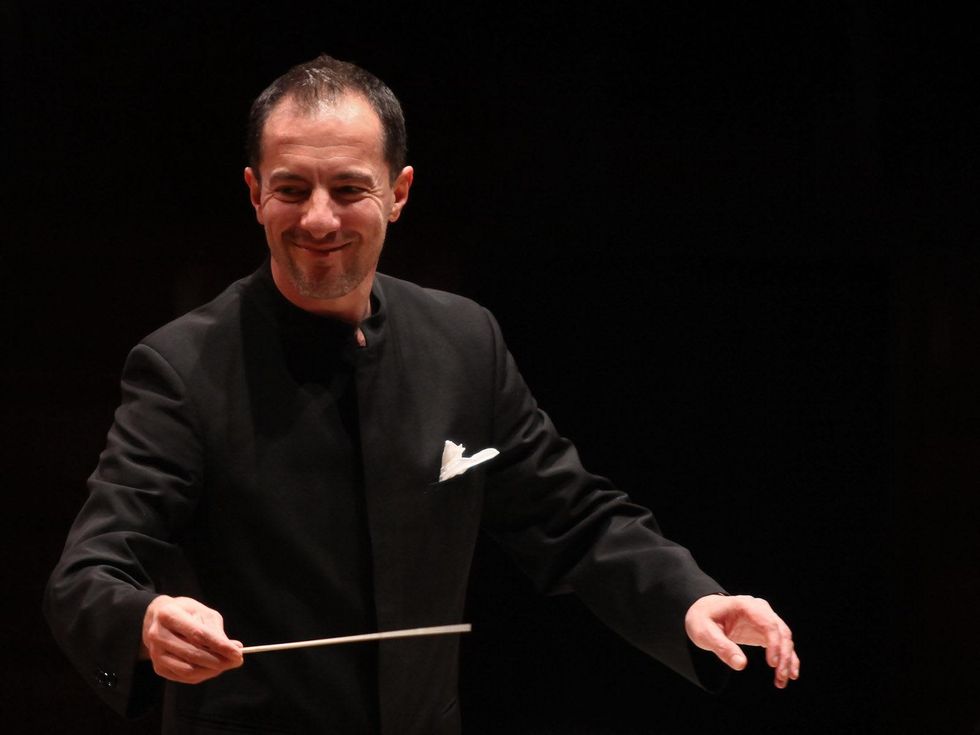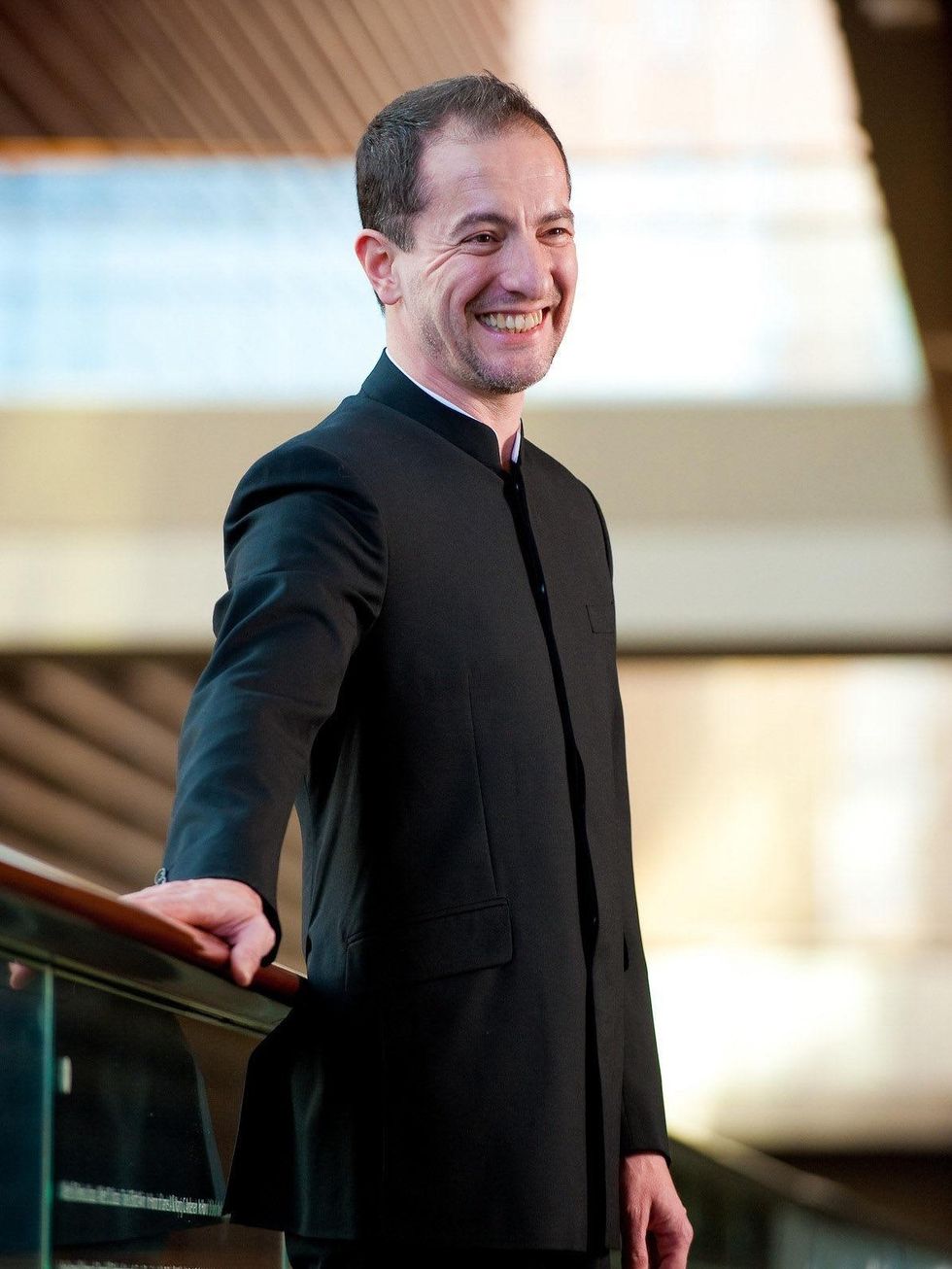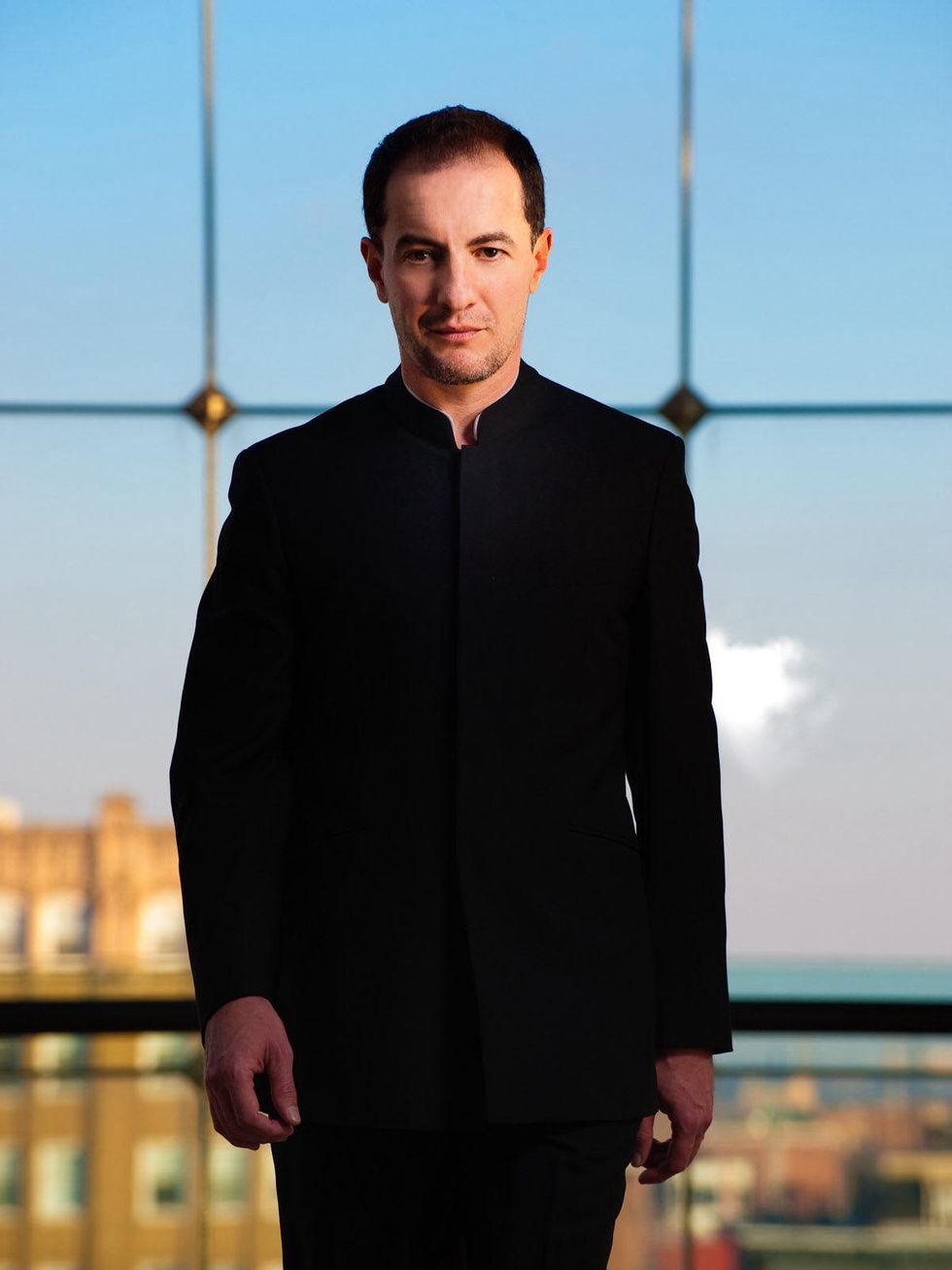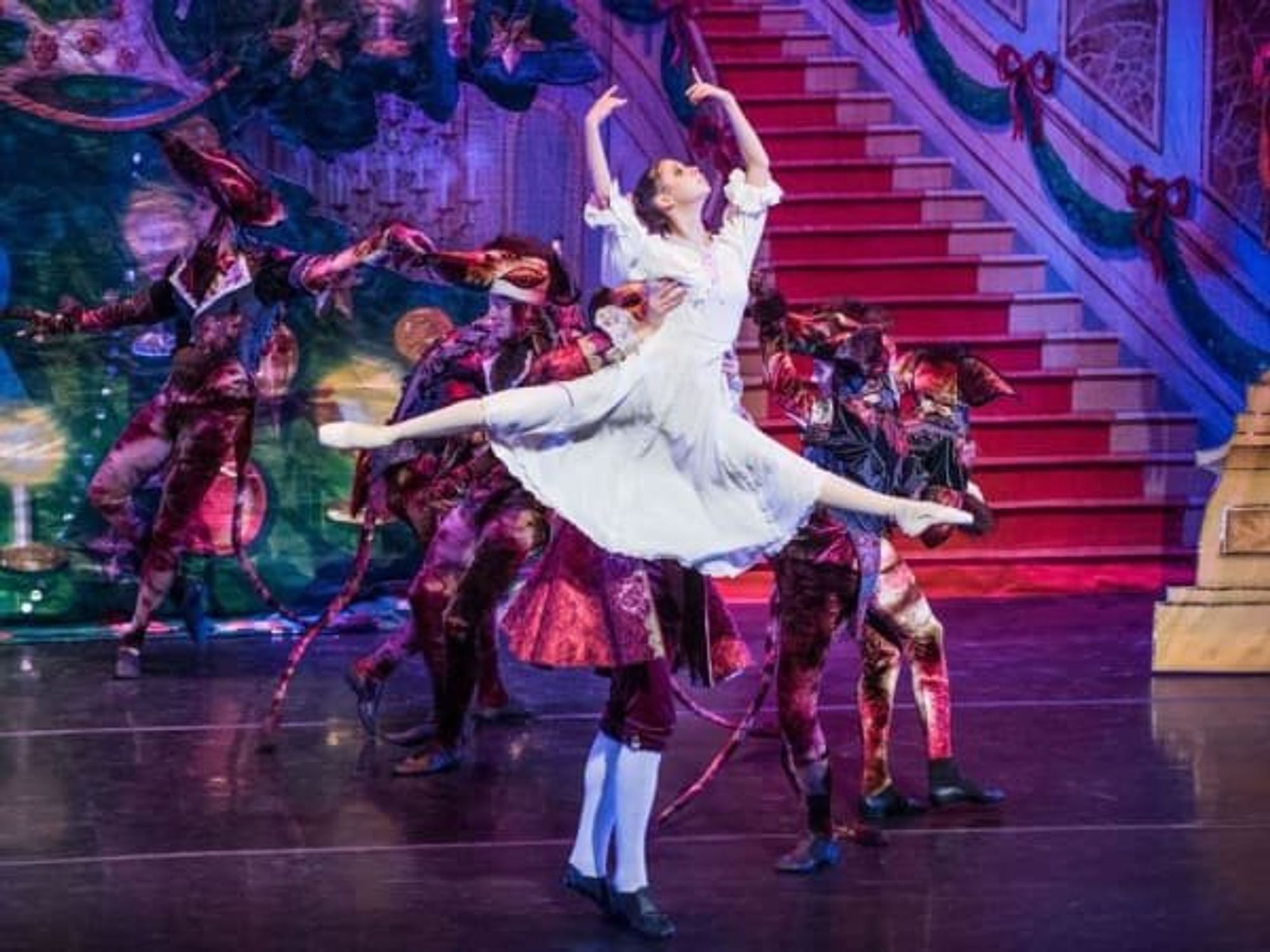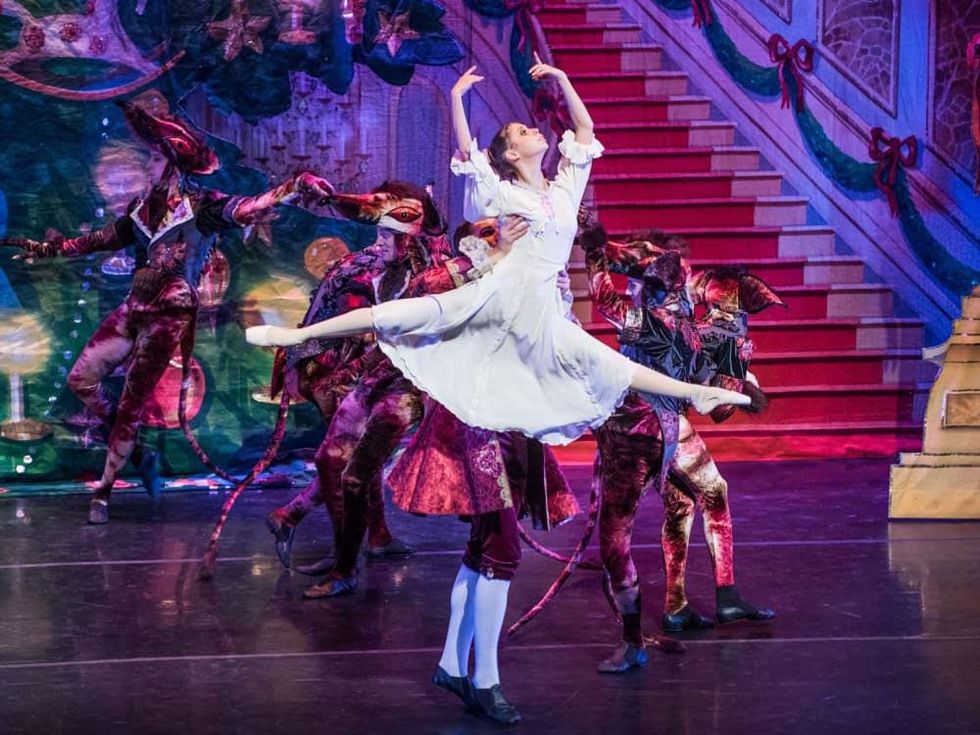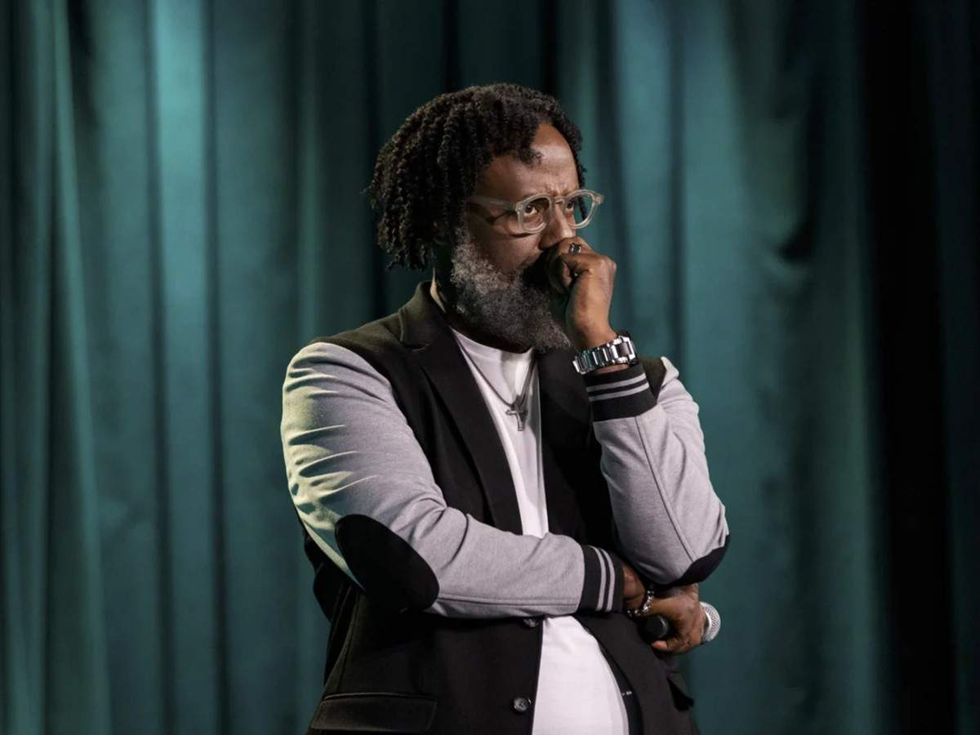The CultureMap Interview
Metaphors of the human psyche: Rock star maestro brings his wisdom to Texas Music Festival
How can artists communicate that which they haven't experienced?
While the process of refining skills needed to win a job at a professional symphony orchestra typically involve technique — think perfect rhythm, impeccable intonation and a consistent sound in all registers — the successful execution of a Gustav Mahler symphony is dependent on more — much, much more. If a picture is worth a thousand words, Mahler's scores are worth a thousand pictures.
Painting these pictures through music is exhausting, daunting and emotionally draining, a task that compels instrumentalists to channel life experiences to render a fervent interpretation.
As the Texas Music Festival Orchestra prepares to perform Mahler's Symphony No. 7 in e minor on Saturday night, CultureMap chatted with maestro Rossen Milanov, newly appointed principal conductor of the Orquesta Sinfonica del Principado de Asturias in Spain, to glean how he assists young classical music stars in studying this magnum opus of the classical music repertoire.
CultureMap: It's often said that Mahler's music delves deep into the spiritual realm, his music portraying universal truths that can't be described in words, but can be understood through symbols. How do you work with students to communicate Mahler's puissant ethos?
Rossen Milanov: The essence of Mahler lies in the aesthetic of Late Romanticism. His music deals with love, death, restoration, loneliness, happiness and moments of catharsis common to the human experience. This requires a certain music vocabulary, not dissimilar to what one would need to read and understand poetry.
We talk a lot about images with Mahler. In explaining the work to emerging musicians, I try to find a visual equivalent, some sort of a metaphor that describes the mood of the music, that describes this very interesting exploration of the dark side of life, the shades of darkness that are layered within the human psyche.
Mahler's Symphony No. 7, in its majority, is all about said darkness. But the darkness is not always entirely obscure — it's composed of different shades. Your eyes need to adjust to the lack of light for these gradations to come into view: You see the shadows, you feel the textures and you aware of your surroundings. The Symphony No. 7 is much more subtle that his other works.
CM: When listening to Mahler, our perception of time changes. His works can last longer than one hour, yet time appears to fly by. Why is that?
Music — all art in general — has to have a point of view. Working with young musicians to achieve their point of view is very rewarding.
RM: There are so many shifting layers, so many ideas that keep the mind engaged. We often listen to music horizontally in time, but Mahler demands a different type of connection: We listen vertically. We get lost in the different environments forged by the complex instrumentation.
There's certainly an element of storytelling. Listening to a complete Mahler symphony is akin to meeting relatable characters at the beginning whom we feel compelled to follow through to the end. Their journey is our journey. Perhaps like watching a well-made movie, Mahler's intensity alters our perception of time.
CM: You've worked with the creme de la creme — including Yo-Yo Ma, Itzhak Perlman, Joshua Bell, Midori, Christian Tetzlaff and André Watts — yet you choose to dedicate much of your time to nurturing the next generation of classical musicians. Why is that important to you?
RM: I feel that classical music has to be passed on from musician to musician through personal contact. You can't learn music from a book, from a video or from a recording. When I was young, I had mentors that helped me gain the personal confidence to follow my passion. It's very important for a young musician to learn at an early age that to be an artist means to have a specific and convincing point of view.
Music — all art in general — has to have a point of view. That's why we don't get tired or listening to different interpretations of the same piece.
Working with young musicians to achieve their point of view is very rewarding.
Plus, I feel I have a moral obligation to pass on what was passed on to me.
CM: What do you enjoy most about teaching?
RM: Equally important is that I enjoy the enthusiasm of young musicians, their attitude that they can do anything, their no-fear approach. They don't know how difficult this music is, really, which sometimes inhibits professional musicians from giving their all. There's risk in music-making.
I give a lot to my students. The energy they give back in return is contagious.
CM: The classical music field is an ever evolving profession. What's your best advice for someone who's considering embarking on a classical music career?
RM: The most important thing is that you have to be convinced that music is what you want to do — what you need to do. Do I love music that much that I can't live without being in the field? You better be absolutely certain that you aren't attracted to the attention to any other extraneous motivations.
If the answer is yes — that you need to be a musician — then you need to try to be the best by sharing your convictions, your honest point of view with the world.
CM: First time in Houston?
RM: Yes. I am loving it. The heat isn't that bad.
___
The Texas Music Festival presents "Festival Orchestra 3" on Saturday, 7:30 p.m, at Moores Opera House at the University of Houston. Pre-concert entertainment on the Jane Blaffer Owen Plaza starts at 6:30 p.m. A pre-concert lecture led by Andrew Davis begins at 6:45 p.m.
Tickets are $15, $10 for students and seniors, and can be purchased online, by calling 713-743-3313 or at the door.
